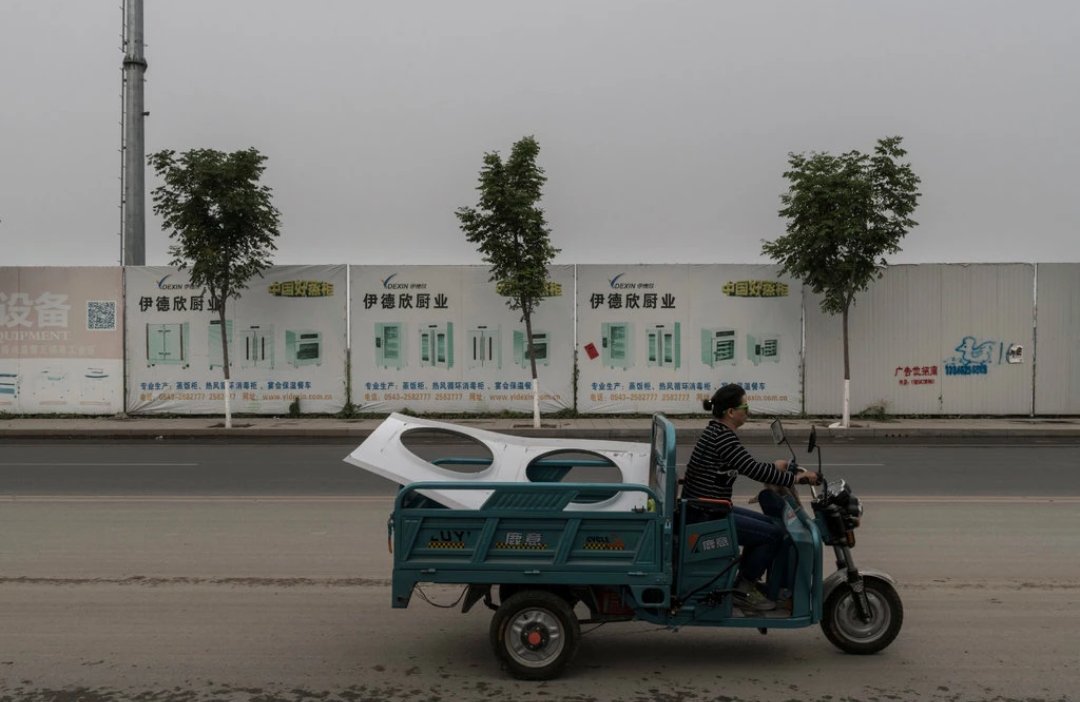
China is touted by its cheerleaders as a modern economic miracle. On the one hand, its recent decades of growth have indeed seemed astonishing – but the glitter of “Crazy Rich Asians” has blinded too many people to the often harsh realities of the Chinese “miracle”.
Firstly, for all the astonishing wealth of the big cities on China’s coast, provinces west of the coastal fringe are still mired in poverty. For the (still admirable) achievement of lifting more than 800 million out of poverty, there are, in the words of Geopolitical Futures, hundreds of millions, perhaps even half a billion more, who have not been lifted out of poverty.
Secondly, the miracle is fast running out of steam, even on official figures – which, in the Communist state, have to be taken entirely on trust.
Finally, contrary to some climate alarmists’ cheerleading, China’s economic growth has come at a stupendous environmental cost.
Last month, scientists disclosed a global pollution mystery: a surprise rise in emissions of an outlawed industrial gas that destroys the atmosphere’s protective ozone layer.
The unexpected spike is undermining what has been hailed as the most successful international environmental agreement ever enacted: the Montreal Protocol, which includes a ban on chlorofluorocarbons, or CFCs, and which was expected to bring a full recovery of the ozone layer by midcentury. But the source of the pollution has remained unknown.
Contrary to the often exaggerated and difficult to substantiate claims of climate alarmism, ozone depletion was an easily demonstrable problem with a relatively straightforward solution. But while climate alarmists have cheered on ridiculously hyped claims about China’s growth in renewable energy, while simultaneously letting China slide on its staggering growth in carbon emissions, it turns out that China is damaging the world’s atmosphere in a very real way.
Interviews, documents and advertisements collected by The New York Times and independent investigators indicate that a major source — possibly the overwhelming one — is factories in China that have ignored a global ban and kept making or using the chemical, CFC-11, mostly to produce foam insulation for refrigerators and buildings…
China’s struggle to eradicate CFC-11 embodies the hurdles it faces in cleaning up after decades of frenetic industrial expansion, when officials often treated pollution as a necessary price of prosperity. But it also has consequences far beyond the nation’s borders…Scientists predicted that, as the chemicals produced before the ban came into force degraded and disappeared, the layer would be fully restored by the middle of this century. But the recent study said the new emissions could delay that recovery by a decade.
Many of the worst calamities to befall China in the past century have occurred directly as a result of its Communist government. As the hit tv series Chernobyl has shown, the initial disaster was amplified to horrendous proportions by the Communist culture of secrecy and authoritarianism. From the Great Leap Forward to the One Child Policy, China has similarly been constantly afflicted by the consequences of the short-sighted decisions of its all-powerful rulers.
But paradoxically, underground demand for CFC-11 may have been partly spurred by China’s increasingly strict environmental standards. The government has demanded better insulation of buildings so they waste less energy, and that means more foam.
At the same time, the government has tightened supplies of the main legal foam-making agent used in China, HCFC-141b, which is less harmful to the ozone layer […]
[…] Fan Jingang, a chemical factory owner who said he did not use illegal chemicals and had pulled out of making foam [said] “Energy conservation is a national policy, but if you can’t make a legal foam agent affordable, then you can’t achieve that goal.”
China is often the poster boy for climate alarmists who praise its authoritarian rulers’ “ability to get things done”, unlike “weak” democracies. But the checks and balances of democracies, while sometimes slow and messy, “get things done” better than despots whose often contradictory rule by fiat lurches from one disaster to another.

